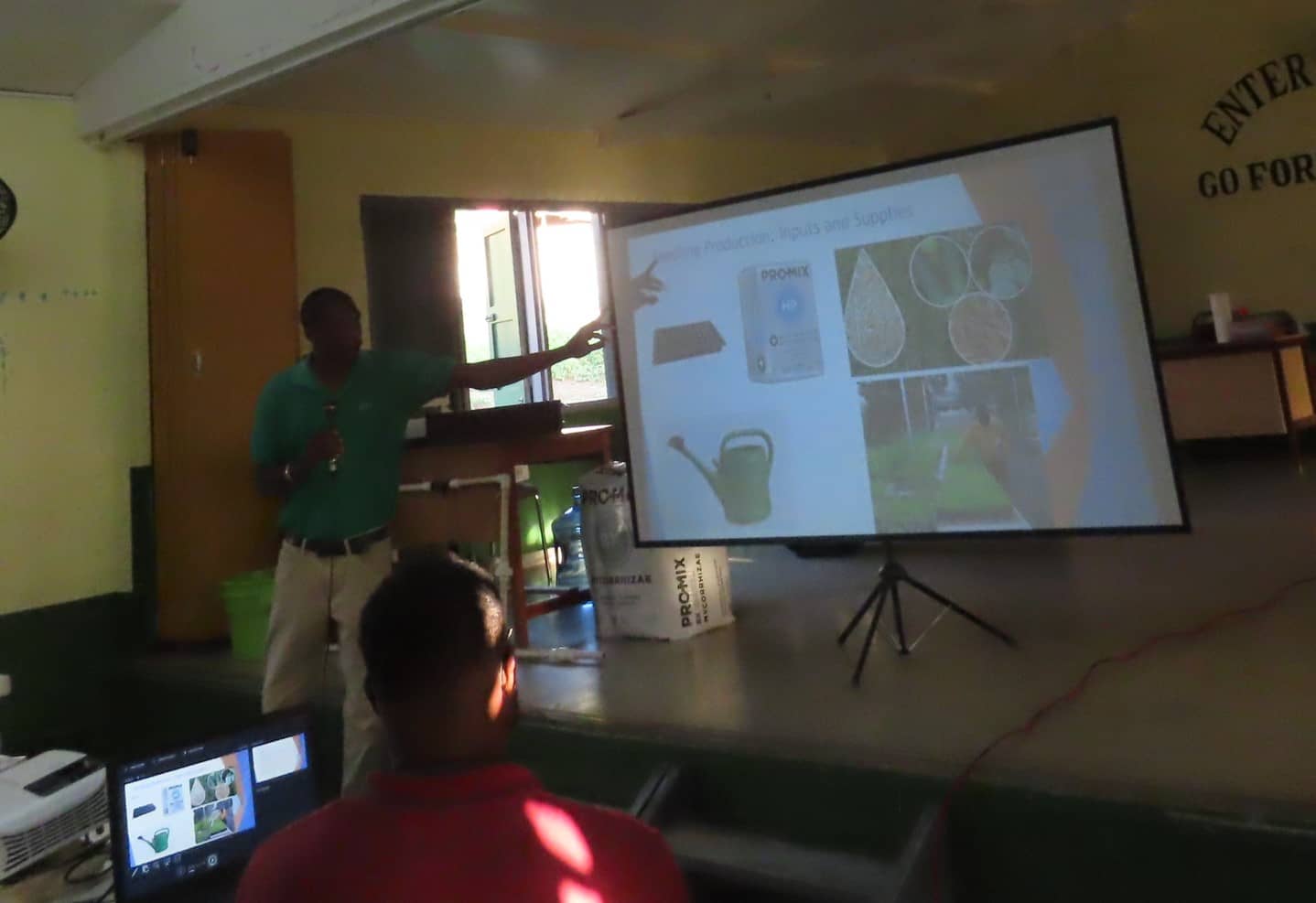
The observance of Chemicals Awareness Week continued at the Inland Revenue Conference Room yesterday (Thur) with A Forum on legislation, regulations and strategy for implementation.
In attendance were key stakeholders and businesses which make use of chemicals and/or pesticides in their day-to-day business operations.
Pesticides are compounds that are used to kill pests, including insects, rodents, fungi and unwanted plants (weeds), while, chemicals are substances, which have been artificially prepared.
Registrar of the Pesticides and Toxic Chemicals Board, Jonah Ormond addressed the importance of enforcing regulations and the Chemical Act, as it is responsible in aiding in the regulation of the complete life cycle of chemicals use from importation to the disposal in Antigua and Barbuda.
He also stressed to the stakeholders the importance of registering products; there is a mandatory form, which needs to be filled out which would mention the tradename of the chemical, active ingredients, quantities and package size of the product, storage address, etc. This is important so that the board is able to keep up to date with the type of chemicals that are coming into the country.
If a person or business is in possession of an unregistered chemical, it is deemed a violation and can result in a fine or an arrest.
In addition, they will be able to know what the substances are being used for, this is important to ensure that certain hazardous substances are not being brought in to be used as drugs or illicit acts.
A strategy, which the Pesticides and Toxic Chemical Board has implemented to be able to ensure that businesses are complying with the law, is the use of inspectors, currently there are only four (4) inspectors in the country.
These inspectors will focus on places like businesses, hotels, restaurants, mechanic shops etc or any institute which will have an impact on the use of chemicals.
Dr. Nneka Hull James, an inspector, spoke on the role and the importance of inspectors.
She mentioned that firstly, inspectors have the power to enter a premise unannounced, conduct a search, inspect, examine documents, open, exam packages, and even take samples of substances.
“The objective of inspections is to determine and facilitate compliance,” stated Dr. Hull James.
In the event where during an inspection, an inspector discovers an unregistered chemical, that inspector have the power to seize and detain the chemical from that business and they will be given a notice not to bring in this substance.
Another Inspector, Algernon Roberts stated that one of the main things which inspectors look for is the storage of chemicals, as it is important that wherever these are stored should properly ventilated to ensure the safety of employees and the public as even though the bottles are closed, somehow vapors are able to escape.
In addition, he mentioned that they also ensure that the staff are properly trained to handle these chemicals, as some can be very harmful. In addition, he stated that they also look for whether or not in the case of an incident with one the chemicals that there are appropriate tools in near reach to contain the incident.
Mr. Jonah Ormond stated that the board is looking to conduct training courses for persons who are in close contact with pesticides to ensure that they are familiar with the laws and regulations, identification of pests and chemical application.
Chairperson of the Pesticides and Toxic Chemicals Control Board and Director of Analytical Services within the Ministry of Agriculture, Dr. Linroy Christian, expressed his concern with the fact that in Antigua ,there are extremely dangerous chemicals which are easily accessible to the public on the shelves of some institutions and anyone can go in and buy them.
The substances of concern can be used to conduct illicit activities and should not even be brought in or since they are, they should not be as accessible as they are to the public.
“What we hope to do later on is unless you have an identification card, you cannot go in and just purchase certain chemicals and walk away with it,” stated Dr. Christian.
He also touched on the snail bait, which is being purchased to control the Giant African Snail infestation in Antigua.
As useful as the bait may seems, it poses a threat to the environment as when it is just sprinkled on the ground, it can get into the ground water which we then intake.
Persons are now being advised to collect the snails and then place them in a plastic or container and pour salt on them.
As the Pesticides and Toxic Chemicals Board is a department within the Ministry of Agriculture, the board said that it is looking forward to working more closely with the ministry and the farmers.
This relationship is important as farmers themselves make use of pesticides in their farms, and with these agricultural practices, they will have to educate farmers on the maximum and minimum residue limits, which will be implemented on certain crops.
Chemicals Awareness Week runs from 2nd – 6th March 2020.
Advertise with the mоѕt vіѕіtеd nеwѕ ѕіtе іn Antigua!
We offer fully customizable and flexible digital marketing packages.
Contact us at [email protected]
















